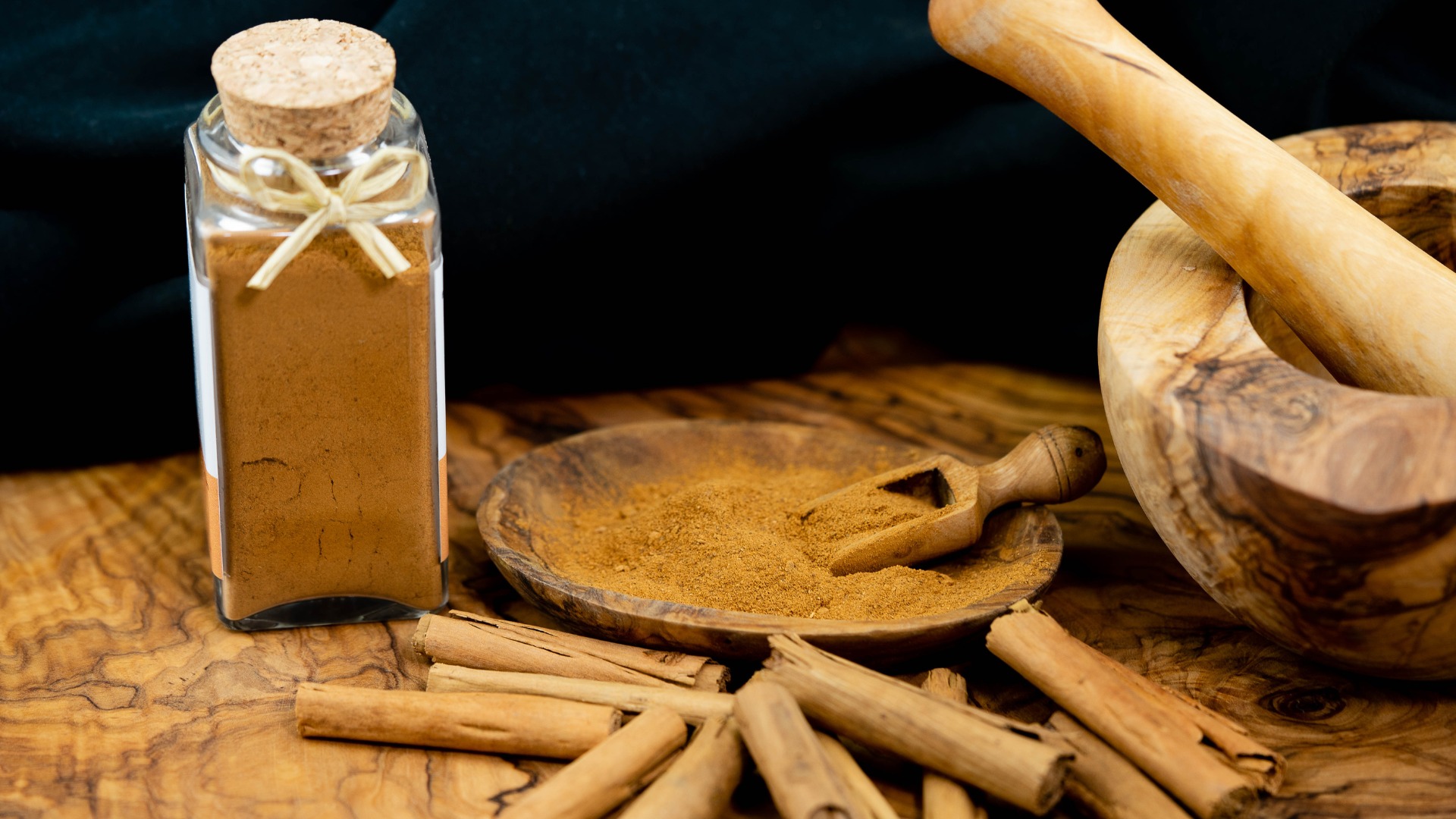
When you think of cinnamon, you probably picture its warm, sweet aroma wafting from a freshly baked dessert or sprinkled over a cup of cappuccino. But what if I told you cinnamon is far more than a kitchen spice? For centuries, it’s been revered not only for its flavor but also for its incredible medicinal properties.
Modern research is now backing what ancient cultures have known all along: cinnamon can be a powerful tool for improving your health. Here’s why this everyday spice deserves a permanent spot in your pantry — and not just for baking.
Table of Contents
Packed with Powerful Antioxidants
Cinnamon is loaded with polyphenols — plant-based compounds that fight oxidative stress. These antioxidants protect your cells from free radical damage, which is linked to aging, inflammation, and chronic diseases.
💡 Fun fact: In studies, cinnamon ranked even higher in antioxidant activity than many “superfoods” like garlic and oregano.
Naturally Reduces Inflammation
Chronic inflammation is at the root of many health problems, from arthritis to heart disease. Cinnamon contains anti-inflammatory compounds that help reduce swelling and pain in the body. If you have joint discomfort, adding cinnamon to your diet might provide natural relief.
Helps Regulate Blood Sugar Levels
Cinnamon is well-known for its ability to improve insulin sensitivity. By slowing down the breakdown of carbohydrates in your gut, it prevents sharp spikes in blood sugar. This makes it a great addition for people trying to manage Type 2 diabetes or prevent insulin resistance.
Boosts Heart Health
Regular cinnamon intake has been linked to reduced total cholesterol, LDL (“bad” cholesterol), and triglycerides — while maintaining or increasing HDL (“good” cholesterol). Together, these benefits help lower your risk of heart disease.
Supports Brain Function
Some studies suggest that cinnamon’s compounds may protect brain cells from age-related damage and improve memory and learning abilities. It’s also being studied for its potential role in reducing the risk of Alzheimer’s and Parkinson’s diseases.
Fights Bacterial and Fungal Infections
The essential oils in cinnamon, especially cinnamaldehyde, have potent antibacterial and antifungal properties. They can help fight oral bacteria (reducing bad breath) and even inhibit the growth of certain food-borne pathogens.
May Aid in Weight Management
By stabilizing blood sugar and improving metabolism, cinnamon can help curb cravings and promote fat loss over time. Plus, its naturally sweet taste can help you cut back on added sugars.
May Aid in Weight Management
-
Morning Boost: Add a pinch to your coffee or tea.
-
Smoothies: Blend into fruit smoothies for a warm, sweet flavor.
-
Oatmeal & Yogurt: Sprinkle on top for added antioxidants.
-
Golden Milk: Mix with turmeric, ginger, and warm milk for a soothing drink.
Precautions & Tips
-
Choose Ceylon cinnamon (“true cinnamon”) for regular use — it has lower levels of coumarin, a compound that can be harmful in large amounts.
-
Limit intake to ½ to 1 teaspoon per day to avoid potential side effects.
-
Pregnant or breastfeeding women should consult a doctor before taking large amounts as a supplement.
Cinnamon isn’t just a cozy flavor for fall — it’s a year-round health weapon. From boosting your immune system to improving heart health and brain function, this humble spice packs a powerful punch. The best part? It’s inexpensive, easy to find, and incredibly versatile.
So next time you reach for cinnamon, remember — you’re not just adding flavor, you’re adding years of health to your life.


